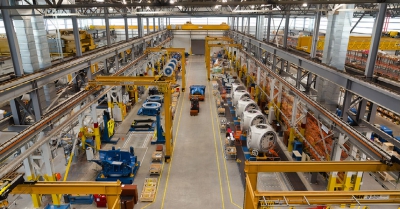Supply Chain resilience and productivity are interlinked and, if they are operating effectively, can enable firms to retain resilience and enhance productivity, according to new research reports published by the Midlands Engine Observatory.
As part of their ongoing remit to deliver regionally focused research and analysis to our partners, the Midlands Engine Observatory commissioned five projects to investigate current trends and issues connected with manufacturing supply chains in our region.
The five supply chains projects are:
- Opportunities and challenges for industrial supply chains in the Midlands region: A systematic review (Warwick Manufacturing Group)
- Towards net-zero: Exploring the current state of low carbon (Warwick Manufacturing Group)
- ‘Anti-COVID-19 Capabilities Underpinning Resilient Supply Chains’ framework: evidence from manufacturing firms in food supply chains in the Midlands-UK. (University of Lincoln)
- The resilience of advanced manufacturing supply chains across the Midlands (Birmingham City University)
- The advanced manufacturing (including MedTech) sector supply chains (The Manufacturing Technology Centre)
Each Supply Chain Research Report is now live on the Sectors and Supply Chains webpage.
A supply chain refers to the activities an organisation needs to perform to deliver goods or services and differs by industry.
Supply chains have their roots in manufacturing but are now universal across the entire business landscape and Industry has long recognised that supply chains, rather than individual firms, compete with one another.
Research, therefore, suggests that if firms can collaborate towards the improvement of their supply chains then regional productivity can be improved and sustained in the long term.
Global disruptions such as Covid-19 and Brexit, as examined within the collection of research reports, have further underlined this need.
Recommended interventions to help the region become more resilient and more productive include increasing the use of low carbon methods, encouraging collaboration among different sectors and stakeholders and encouraging interoperability between different technologies.
Observatory Director Professor Delma Dwight said:
The collection of research reports we’ve commissioned, which look at sectors as varied as food, automotive, aerospace and medical technologies operating within our region point to the conclusion that a business is only as resilient as its supply chain.
With direct input from regional businesses, each of our research teams have addressed existing resilience capabilities and identified potential policy implications which would promote the advancement of Midlands supply chains.
I want to thank the researchers from across our region who have come together to help us move a step closer to finding the answer to our productivity puzzle.
For the latest on our region, subscribe to Midlands Matters, the official newsletter of the Midlands Engine.




